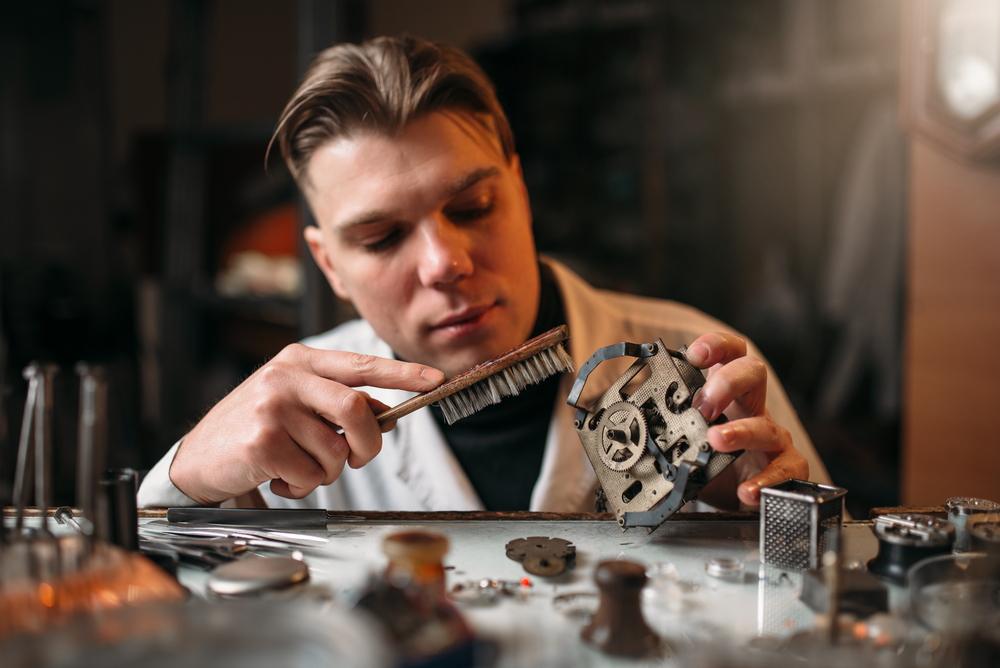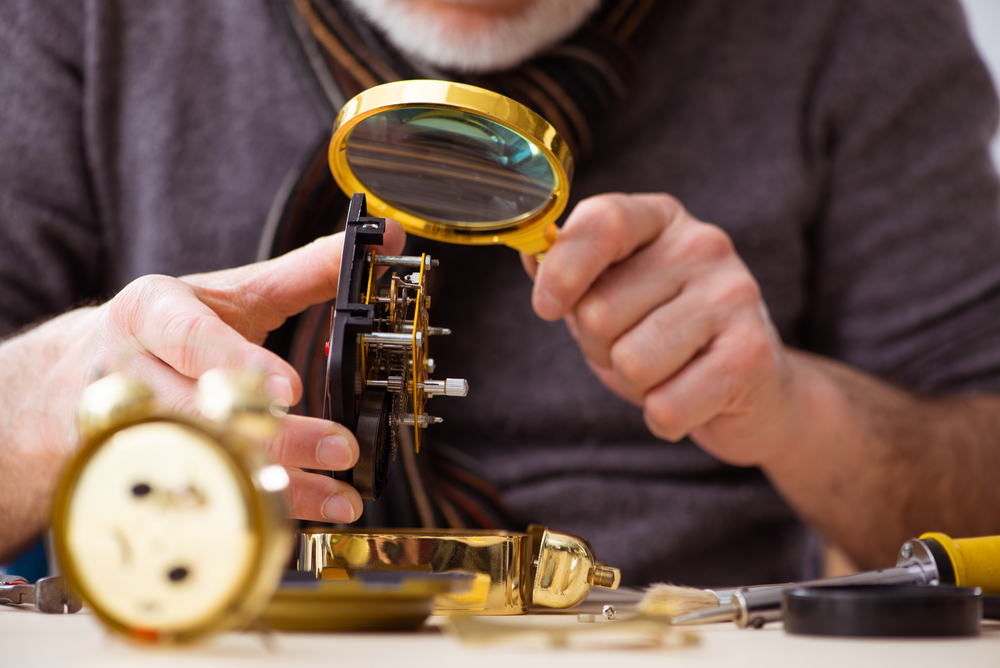Last Updated on February 24, 2023
Many homes have an antique clock or a mantel clock that acts as an ornament and a timepiece. Over time, these clocks are subject to wear and tear and can stop working.
Did you know that it is possible to fix a clock yourself? In this article, we’ll look at how to fix an overwound clock and will tackle some basic clock maintenance tips.
What Does Overwinding Mean in Clocks?
Overwinding a clock is a generic term. It is virtually impossible to overwind a clock unless it is an antique. Overwinding instead refers to when your clock stops and is not working anymore. The most common thing that causes this is an overwound mainspring.
Repairing a Clock: A Simple Guide
Is your clock stuck? Worry not! A clock can be fixed using a number of easy methods. Oftentimes all it takes is a few basic adjustments or cleaning methods.
Step 1: Identify the Issue

First, you must see why the clock isn’t working properly. Identifying the problem depends on that type of clock.
Pendulum clocks commonly break due to the pendulum becoming misshapen or damaged. Here you should check inside the clock and see if the pendulum has any signs of damage.
Alternatively, most clocks with a mechanical system will experience damage to the mainspring. If you have a mechanical clock, check inside and look for any broken wires or damage to the mainspring.
Step 2: Clean the Clock
You can solve clock movement and problems via a thorough cleaning. Over time, the mechanism can become dirty, and this can impede movement. Before making any basic adjustments, give your clock an initial clean.

This process must be done carefully, and to do it properly, you should dismantle the clock parts.
Gently clean the different parts with warm water and a bristle brush to remove dust and dirt. You can then use a clock cleaning solution. Follow the instructions of the clock cleaning fluid and give each part a good cleaning.
However, you can also use compressed air to blast the casing and remove any dirt, dust, and grime — do not use compressed air on the fragile mechanical parts.
Step 3: Lubricating the Clock Mechanism
If the initial cleaning did not work, you could now try lubricating the mechanism.
Frequently the mainspring is poorly lubricated, which prevents it from moving freely and continuously winding to power the clock.
You should remove the mainspring while wearing latex gloves. Once removed, you can apply small amounts of clock oil. It is important to only apply new clock oil liberally as too much can clog up the ropes inside.
Do not use any generic or old oil like WD40. Clock owners should only use specially developed clock oil.
Step 4: Replace the Springs
Another part of the internal system that can cause issues is the clock springs. Like the mainspring, the other springs can be cleaned and even replaced.
Over time, springs can become worn and damaged — this could cause the working order of the clock to be disrupted if one of the springs isn’t moving properly.
Step 5: Take it to a Clock Repair Shop
Once you have re-assembled the clock, it should work again, hopefully! When disassembling antique clocks, we advise taking photos and making notes of the different parts and where they go — this will make the process that much easier.

If the problem persists, then your clock needs to be repaired by a professional. There could be some internal damages you are unaware of, for example. In this instance, once you have saturated your clock-repairing skills, take it to a repair shop!
Clock Maintenance FAQs
Is It Advisable to Try and Repair a Broken Clock Yourself?
This depends on your confidence, the value of the clock, and the mechanism. Generally, something like a grandfather clock or an antique clock should only be repaired by professionals. However, you could perform a simple mantel clock repair yourself.
Can You Potentially Damage the Clock?
Yes! Mechanical clocks are incredibly intricate and fragile objects. You can easily damage the internal system. Also, if you dismantle the clock and do not put it back together properly, it may still not work.
How Often Should You Wind a Clock?
Most clocks are set to run for eight days before being wound. As a result, it is advised that you wind your clock every seven days.
Fixing an Overwound Clock Made Easy
We hope you have found these simple tricks and guide on how to fix an overwound clock useful. Mechanical clocks are fantastic devices and require a lot of love, care, and attention.
Make sure you only wind your clock when necessary to avoid damage. And also, if you are not 100% confident in your abilities, no worries. There is no harm in seeking professional help!
Paul is the type of person who never met a problem he couldn’t fix. He can always be found tinkering with something in his house, even if it isn’t broken! His tips and tricks are often shared on our site. He’s the one you call when something breaks because he has been known to improvise fixes for everything from leaky faucets to malfunctioning dryers.

